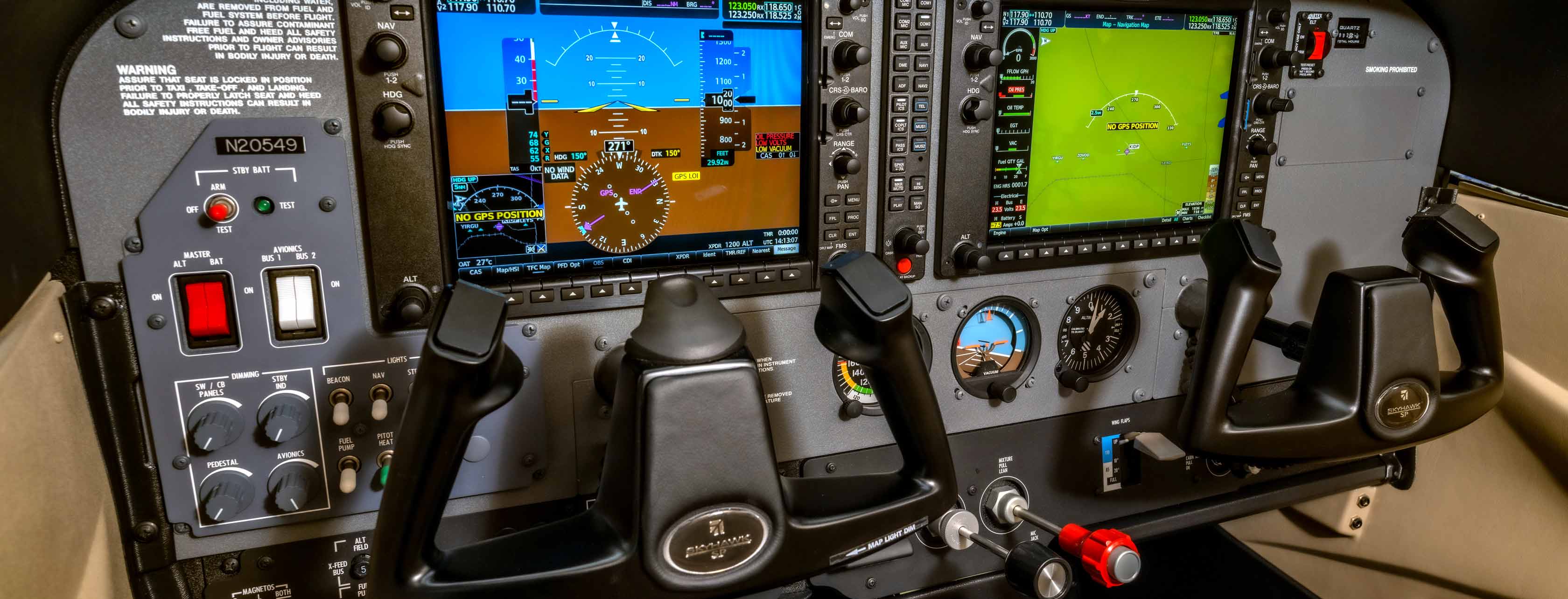Instrument Rating: What Is an Instrument Rating?
An Instrument Rating (IR) is a pilot rating earned through intensive training focused on flying solely by reference to instruments. It is arguably one of the most valuable ratings you can add to your pilot certificate and is a fun and challenging discipline of flight training. A well-trained and proficient instrument pilot can fly an airplane from point A to point B without ever having to look out the window except for takeoff and landing; it is truly a remarkable skill.
For many new pilots, the training provided in the instrument rating is the first glimpse at how the National Airspace System, radar and air traffic control works. All important concepts as you will now be qualified to fly in the same airspace that the turbine airplanes. For others, it is usually the first time they’ve been allowed to enter the clouds or fly on a dark and stormy night, known as flying in instrument meteorological conditions (IMC) on an Instrument Flight Rules (IFR) flight plan.
Why Should I Get My Instrument Rating?
There are several reasons why a pilot might want to earn an instrument rating on their pilot certificate, including;
- The first is safety. Even if a pilot never intends to fly in the clouds or conditions outside of visual flight rules (VFR), the instrument rating provides an extra layer of safety just in case things do not go as planned during a flight. Not only will the pilot understand more about the weather and what to expect, if the situation really became dire and their only solution was to fly through the clouds, they could safely do so in an aircraft with IFR capabilities.
- A pilot may also opt to get an instrument rating if they want to become a flight instructor.
- Fly as a commercial airline pilot. While it is possible to earn a commercial certificate without obtaining an instrument rating, doing so limits the types of jobs and flying you can do with your commercial certificate.
What Does IFR Mean?
IFR stands for Instrument Flight Rules and without an instrument rating, pilots may not operate under IFR. Instrument Flight Rules essentially means:
- You can file an instrument flight (evaluate weather conditions)
- You can efficiently move through areas of differing airspace
- You do not have to adhere to any specific weather requirements
For pilots that fly longer distances, this is a great tool, as it generally results in a significantly more efficient flight while likely receiving assistance from air traffic control along the way as an additional set of eyes on the air traffic and weather around you. Even if a pilot never intends to fly in actual Instrument Meteorological Conditions (IMC), flying on an instrument flight plan will generally shorten flight times and increase safety.
What is the difference in VFR and IFR? »
How Long Does It Take to Earn an Instrument Rating?
The timeframe for a full-time student pilot with no experience to earn their Private Pilot Certificate is . Adding on an Instrument Rating will take an additional .
